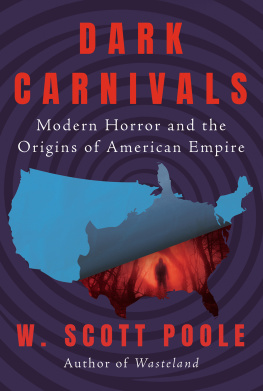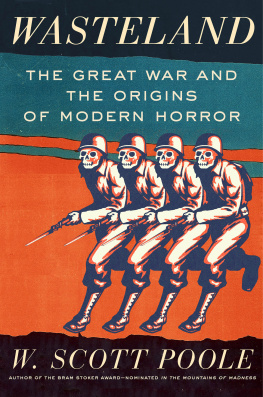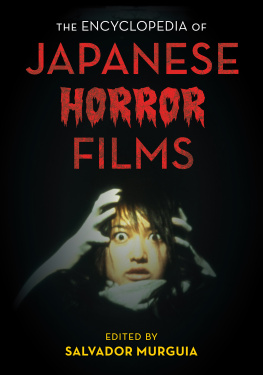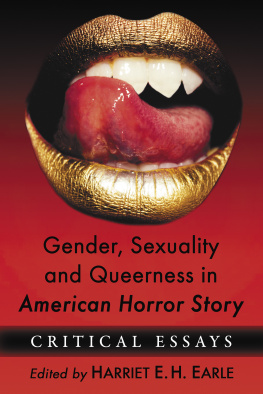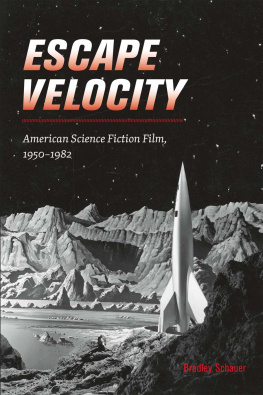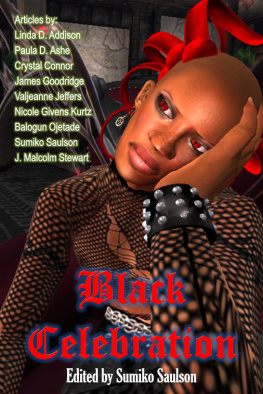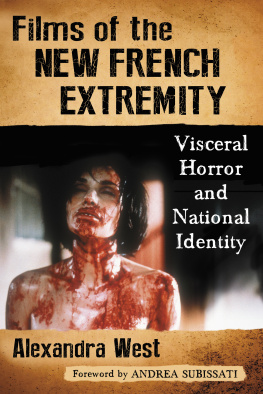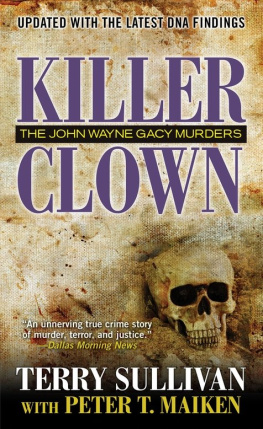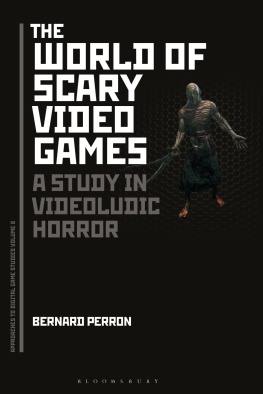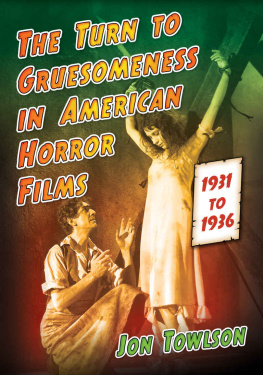Table of Contents
Guide
Page List
DARK CARNIVALS
ALSO BY W. SCOTT POOLE
Wasteland: The Great War and the Origins of Modern Horror
In the Mountains of Madness: The Life and Extraordinary Afterlife of H.P. Lovecraft
Vampira: Dark Goddess of Horror
Monsters in America: Our Historical Obsession with the Hideous and the Haunting
Satan in America: The Devil We Know
South Carolinas Civil War: A Narrative History
Never Surrender: Confederate Memory and Conservatism in the South Carolina Upcountry
DARK
CARNIVALS

Modern Horror and the
Origins of American Empire
W. SCOTT POOLE
Counterpoint
BERKELEY, CALIFORNIA
To Joan and Clarence Poole
Mom and Dad
Inspired by True Events
Is there an imaginable America without enemies and without the story of their slaughter and our triumph?
TOM ENGELHARDT , End of Victory Culture: Cold War America and the Disillusioning of a Generation

Boy, the next word that comes out of your mouth better be some brilliant fucking Mark Twain shit. Cause its definitely going to be chiseled on your tombstone.
OTIS B. DRIFTWOOD , The Devils Rejects
CONTENTS

DARK CARNIVALS

W HO WILL survive America?
Sound and smells and manic lights draw us in. Maybe we will see something forbidden? The curtain desires a hand to open it. A skull bathed in a nauseating red glow invites us to take the haunted ride.
But what happens if we go to the dark carnival and wander the grounds while barkers call us to see their sideshows and the faces around us turn ghastly in the sodium-pale light? It seems a place of banal cruelties. The soda pop toss, the baseball throw, the shooting range are all rigged. The sideshows transform human beings into abominations for our pleasure, freaks conscripted to help us feel normal. The rides are assembled with haste and indifference, and anyone who wants a whirligig or to take a plunge on the roller coaster bets on bad odds.
The clowns sweat through their face paint. They are trying so hard to make us do something, to make us laugh. We cringe because they look like theyre hurting one another in their perverse play, wielding giant hammers and what we hope are only plastic pistols rigged to explode into a little flag... BANG! Their brutal campaign leaves us with the deep unease that we have been abused but are unable to articulate how or why.
The dark carnival incites and titillates.
The sawdust of the carnival has dried up and blown away in the winds of modernity. State fairs are perhaps the closest we come anymore to the sights, the sounds, and the fetid smells of those strange, compelling spaces. Even in the age of colossal theme parks run by Warner Bros., Disney, and Universal Studios, the carnival seems more enticing precisely because its not a safe placeyou might get hurt, you might see something you cant unsee. There lives, somewhere in our psyches where it has crouched on its haunches since the earliest human experience, a yearning for the taboo and the terrible.
Our dark carnivals are, then, a place to visit, an experience desired only because we can leave it behind. But, in truth, we cannot.
If you live in the United States, you are a denizen of the dark carnival. Horror is the lingua franca. Horror defined the American century. Horror provided the legitimacy, the justifications, and the bread and circuses of American empire. Yet, over the last few decades, horror has attempted to shake us out of our sleep, to understand the kind of world we have made, to discover that something wicked isnt coming... its already here.

The United States briefly resisted the subtle temptations of monsters from the dark after the very real carnage of World War I (19141918). Just as the once-great powers of Europe began to recognize the influence the United States would now have in global affairs, their cultures produced unnerving tales of revivified corpses, hallucinatory fever dreams, and crime lords with hypnotic powers of manipulation.
Americans watched slapstick comedies and westerns. One of the most popular films of 1919 starred Lon Chaney in The Miracle Man, a romantic drama.
By the late 1920s, frightening fictions startled the American public like a relentless, unexpected pounding on the door at three in the morning. Master of makeup effects Lon Chaney, no longer connected to romance and uplifting drama, terrified audiences in The Phantom of the Opera (1925), his cadaverous head unveiled in a moment that, to this day, makes the viewer feel theyve been forced to hear a hideous secret about the world. Chaneys villainsdeluded masterminds, vampires, and violent sadistsdelivered a skittering chill up the collective spine of what was becoming the most powerful country on earth. His extraordinary skill with makeup effects made him the master of mutilation, his criminals and creatures distorted by suffering, amputation, and scar tissue.
Darkness came with unexpected speed, the light of the sun spelunking into a black pool of night. Bela Lugosi glided ominously through the opera of terror that was Dracula (1931). The same year, British war veteran James Whale directed Frankenstein, presenting Mary Shelleys monster as a very literal embodiment of a conflict that the German revolutionary Rosa Luxemburg called a corpse factory. For almost twenty years, America danced the monster mash for the World War II generation and their children, making the squared cranium of Frankensteins monster and the lonely yet threatening howl of the Wolf Man two of the most recognizable menaces of Americas mass culture.
Horror fictions clashed with the way much of America wanted to understand itself. The Great Depression had, ironically, plagued the decade that invented the term the American Dream. James Truslow Adams, a popular historian, coined the term in a 1931 book called The Epic of America, which asserted that the country offered opportunity for each according to ability or achievement even as millions stood in bread lines and a quarter of Americans found themselves unemployed.
A bewildering optimism among American opinion makers of the era seemed irrepressible. In 1941, Henry Robinson Luce, the powerful founder of both Time and Life magazines, crafted the term the American century. In perhaps one of the most influential editorials in U.S. history, published eight months before Japans attack on Pearl Harbor, Luce worried that in certain quarters a sickness had taken over American life, a sickness something like a geopolitical malaise. We Americans, he wrote, are unhappy... The future doesnt seem to hold anything for us except conflict, disruption, war.

